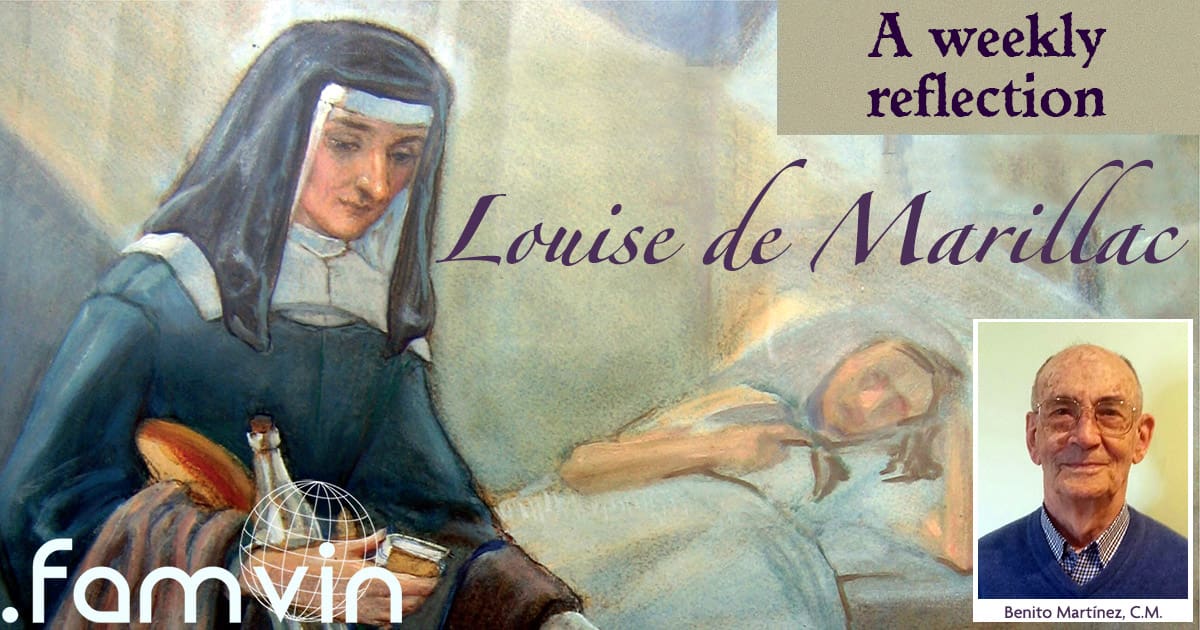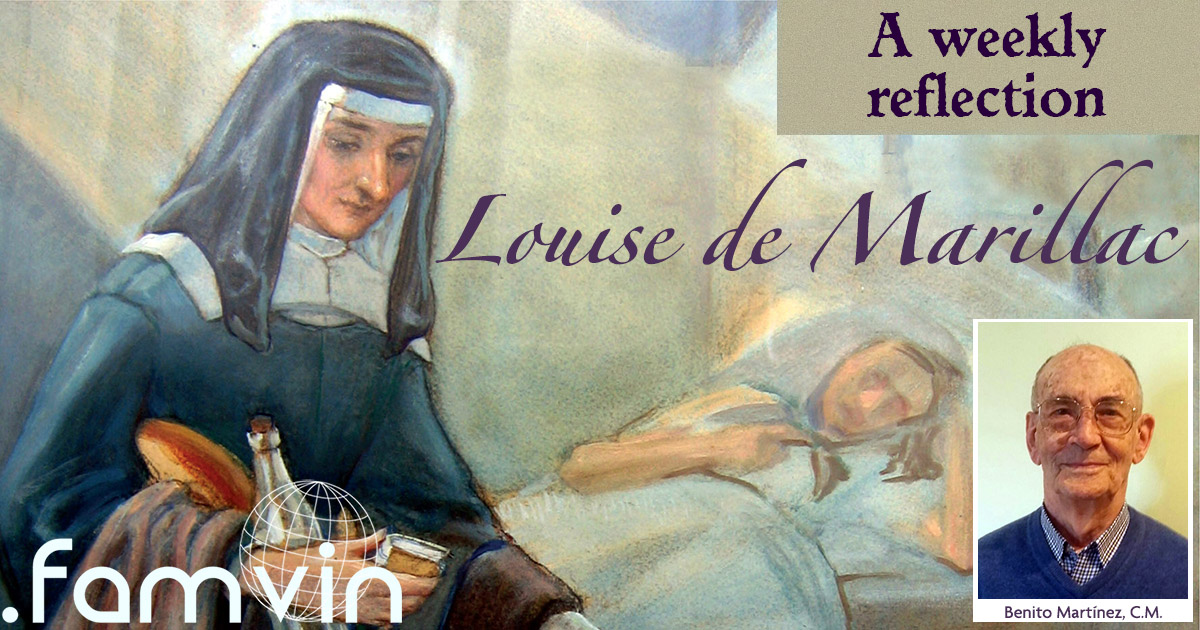Forgiveness, Always In Community • A Weekly Reflection with Louise
“I must tell you about another practice which our Most Honored Father strongly recommended to us at the last conference his Charity gave us. He told us that, as soon as we see that we have offended one or several of our sisters, we should immediately kneel and ask pardon of them. Oh, what a beautiful practice! I strongly recommend it to you for the love of Our Lord” (l. 439).
St. Vincent had said:
“One day I was speaking with the Superior of the Ursuline nuns of Gisors, and she told me about the union and harmony that existed among her Sisters. “But what do you do, Mother,” I asked her in astonishment, “to have such tranquillity in your Community that there’s never any difference of opinion?” “Monsieur,” she replied, “as soon as some cause for disagreement arises, our Sisters have the custom of kneeling down and asking forgiveness of each other, so that no disunion may come into it.” (CCD IX, conference 14).
Louise de Marillac, Letter to Sr. Dubois, in Bernay, and a conference of Saint Vincent to the Sisters.
Reflection:
- The community member who offends another also harms the community; however, just as the offended Sister has to forgive, the community must accept her, for she is the Body of Christ and each Sister a member. When a member sins, she separates herself from Christ, but also separates herself from the community, His body. And all reconciliation with God is to re-integrate into the community and to be able to access Eucharistic communion.
- Christ has granted his body-community the power to redeem each member, since all have been redeemed by Him. The purification of the failed Sister is the work of the whole community, which, united to Christ, offers its forgiveness to the member who has sinned. And it offers her a medical pardon for her correction, which is, at the same time, exemplary for the community.
- We see the community aspect of sin and forgiveness in that sin harms the community and modifies the relationship with the one who has offended. Hence, forgiveness must be equally communal, and the fruit of priestly absolution is not only to forgive sin, but also to receive those who have sinned within the community.
- But, what value does the welcoming of the community have, for the forgiveness of sins, since confession and absolution are usually carried out privately? The accentuation that sin is personal and private emphasizes the legal aspect of absolution, an aspect that has been clearly overcome, and today the intrinsic relationship between the reconciliation of the sinner with God and his reconciliation with the community is emphasized.
Questions for dialogue:
- Do you have trouble forgiving, as a private person? And you have trouble forgiving as part of the Vincentian Family group?
- In the group or branch of the Vincentian Family to which you belong, do you usually study or dialogue what is forgiveness and the incidence you have in the group to which you belong?
- What does usually the sentence “forgive, but do not forget?” mean? And for you, what does it mean?
- Is there forgiveness in today’s society? And between the political parties? And within the carnal family?
Benito Martínez, C.M.








0 Comments